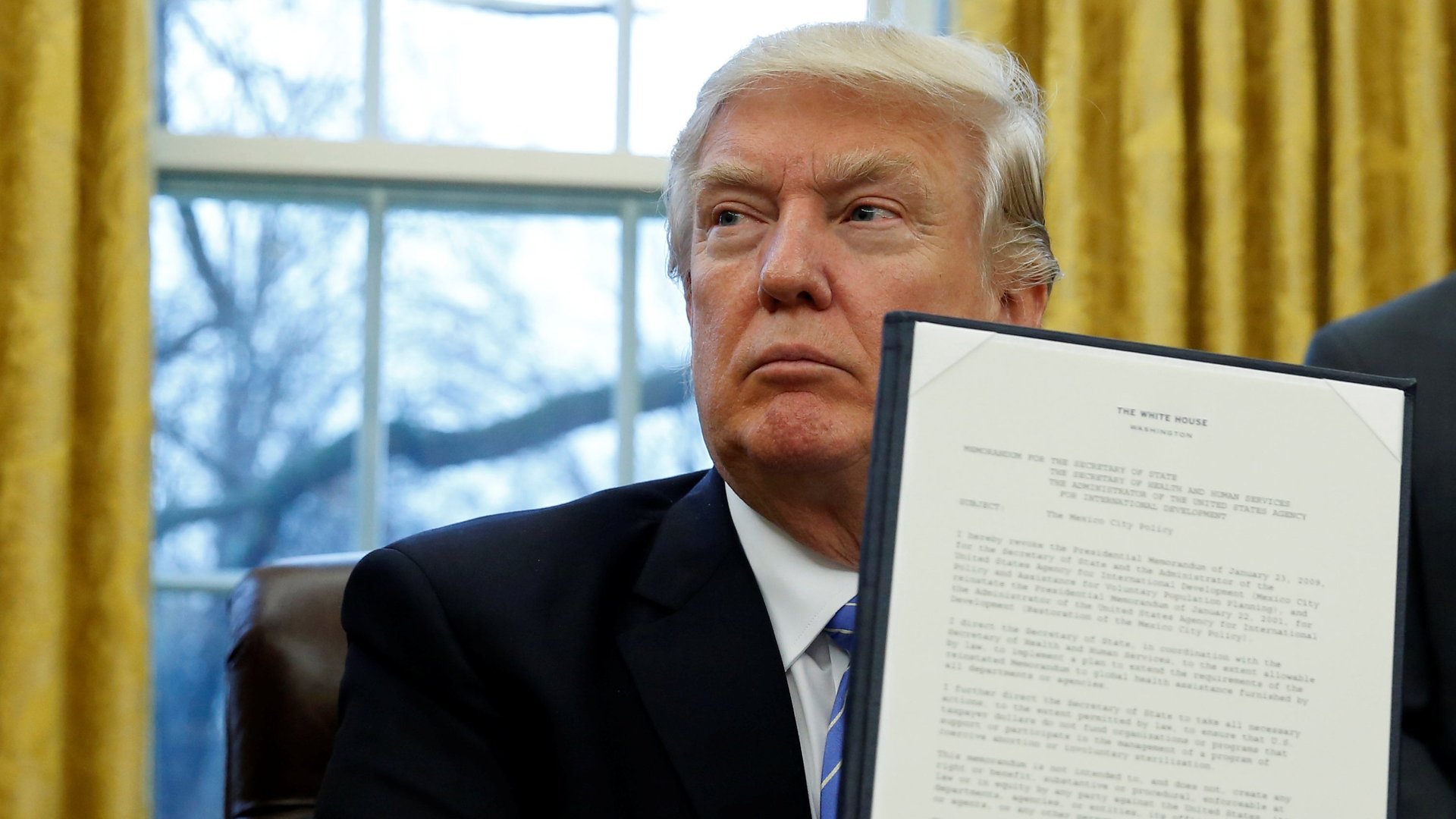A Jesuit priest explains why Trump’s executive actions are not what pro-life leadership should be
On Monday, President Donald J. Trump delivered on an important policy goal for the pro-life movement. On Tuesday, he initiated a series of policy initiatives that flatly contradict the inherent dignity of human life. Taken together, these moves are not a victory for pro-life values; in fact, they are a profound setback.


On Monday, President Donald J. Trump delivered on an important policy goal for the pro-life movement. On Tuesday, he initiated a series of policy initiatives that flatly contradict the inherent dignity of human life. Taken together, these moves are not a victory for pro-life values; in fact, they are a profound setback.
Mr. Trump reinstated the ban, known as the Mexico City Policy, on federal funding for organizations that do not certify that they will not “perform or actively promote abortion as a method of family planning.” This policy has been revoked and reinstated along partisan lines for the past three decades. Along with the Hyde Amendment, which the House of Representatives voted on Tuesday to make permanent, these moves are important pro-life achievements.
Unfortunately, more recent news from the White House revealed that while the pro-life movement may have won a policy victory, there is still a tragic vacuum of pro-life leadership in the Oval Office. On Tuesday evening, news broke that Mr. Trump will soon sign orders for the construction of his long-promised wall along the Mexican border and limit or suspend entry to the United States for refugees from Syria and other “terror prone” nations. These actions demonstrate that whatever motivated Mr. Trump to reinstate the Mexico City Policy, it was not a consistent recognition of the dignity and sacredness of every human life.
Building a wall that will keep out immigrants who are often fleeing violence and despair in their own countries fails to recognize their equal and inherent dignity. Refusing to shelter thoroughly vetted refugees from war-torn countries makes an idol of our own security and sets it higher than the one who said “I was a stranger, and you welcomed me.”
What unites these initiatives, through their disregard for the lives of non-Americans, is that they are important symbols of Mr. Trump’s commitment to the dangerous “America First” brand of nationalism he celebrated in his inaugural address. They are also a counter-witness to a consistent ethic of life and the values of the Gospel.
Mr. Trump’s reinstatement of the Mexico City Policy is also a symbol. But examined in light of his other actions, it is a symbol not of a consistent commitment to pro-life values but of his recognition of his political base. Nonetheless, the reinstatement of the policy has great value. It will reduce support for abortion and limit our national involvement with a moral tragedy. It is also, predictably, being met with fear-mongering from defenders of abortion. This opposition is also largely symbolic—of the priority given to abortion rights at one end of the political spectrum.
The real moral question, and the harder one, is about how Americans can cooperate on shared goals to improve women’s health apart from abortion, rather than treating these programs as pawns in the culture wars. To do that, those of us who recognize abortion as unjust need to work for more than just policy victories. We need symbols that help people recognize the sacredness of human life.
Symbols matter. When pro-choice citizens, or even those on the fence about abortion, look at what happened in the White House this week, they will not see a principled defense of the dignity of human life. Instead, they will see the latest salvo in a partisan war, in which abortion is mostly a proxy battle. And though they may—we pray—fare better, the unborn, like the refugees and immigrants Mr. Trump is only too comfortable demonizing, will have been reduced to a convenient symbol of political victory.
This is not what pro-life leadership looks like. Those who believe in the dignity of every human life should weigh carefully the cost of embracing it.